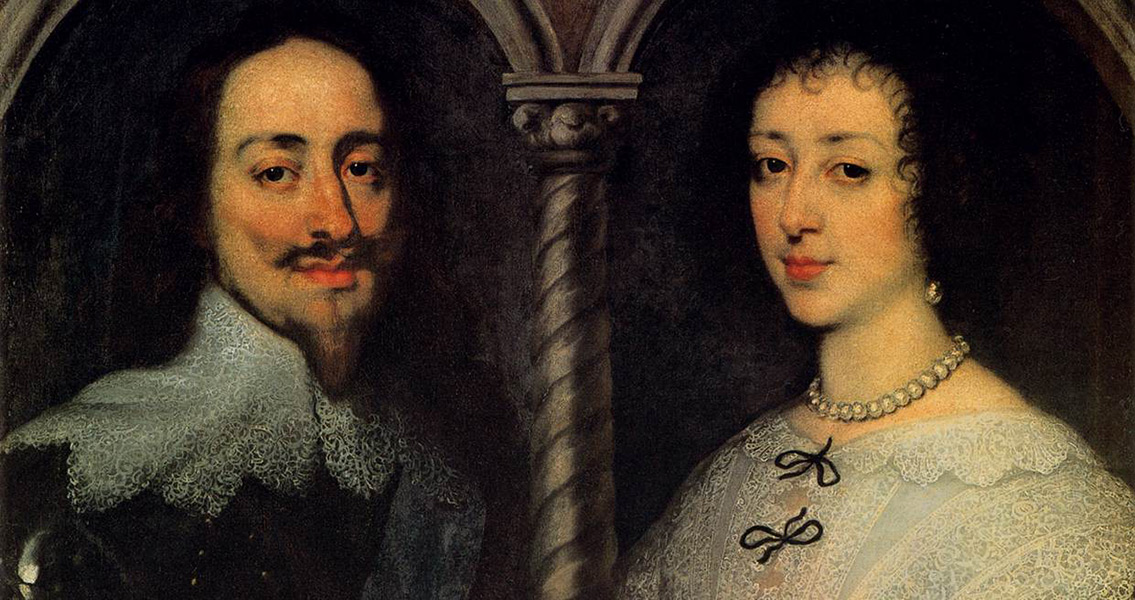<![CDATA[On 30th January 1649 King Charles I was beheaded. He had been the first English monarch tried for treason, and the only one to be executed. His death brought to an end a controversial reign defined by Charles' unpopularity and Civil War in England. Charles, born in Fife, Scotland, was the second son of James I of England and Anne of Denmark. James, the king of Scotland, had inherited the throne in 1603 following the death of Queen Elizabeth I. Charles became heir to the throne in 1612 following the death of his older brother Henry. In 1625 he inherited the English crown, following the death of his father. His reign quickly became a unpopular one, initially as a result of the personal relationships he forged. Three months after his accession Charles married Henrietta Maria of France, a Catholic who was inevitably unpopular in an increasingly Protestant dominated English society. Henrietta aroused the suspicion of the English nobility, as her Catholic friends became increasingly visible in the King's court. Charles also had a close alliance with the Duke of Buckingham, a friend of his father who used his influence against the wishes of the rest of the nobility. Charles' England was plagued with financial problems, many of which had originated during his father's reign. After dissolving Parliament in 1629, Charles would rule alone for the next eleven years, something which gave him greater personal authority but prevented him raising funds from the nobility. In 1640 the King attempted to force an unpopular new prayer book on Scotland, leading to a rebellion. Charles' forces were not prepared for the ensuing conflict, and he was forced to recall Parliament in an attempt to raise funds and troops. Charles failed to reach an agreement with Parliament, and an attempt to arrest five MPs led to the outbreak of Civil War in 1642. For the next six years England was divided between supporters of Parliament (Roundheads) and supporters of the monarchy (Cavaliers). The wealthier Roundheads, led by Oliver Cromwell and his New Model Army, ultimately won the conflict. Charles surrendered to Scottish forces in 1646, who swiftly turned him over to the Roundhead forces. Charles' trial commenced in 1648, and proved to be an incredibly controversial affair. There was no precedent in English Law for the trial of a king, and the age old belief in the 'divine right ' of a monarch meant that few judges or barristers wished to be involved in the trial. The order setting up the court to try Charles had to be written by a Dutch lawyer, Issac Dorislaus, it was based on an ancient Roman law which stated a military body (in this case Parliament) could legally overthrow a tyrant. As such, Charles was charged with being a "tyrant, traitor and murderer; and a public and implacable enemy to the Commonwealth of England." 135 judges were called to try Charles, but only 68 turned up to the proceedings. It seems many MPs were also reluctant to put a king on trial, perhaps fearing divine retribution, or reflecting a reluctance to support the drastic change in the structure of society such an action represented. When the vote to decide whether the King should be tried took place, soldiers prevented any MPs entering Parliament who Cromwell believed might vote in support of the King. At the trial itself Charles refused to speak in his own defence, a sign of his refusal to acknowledge the legality of the occasion. Charles's execution was humiliatingly public. After being permitted one last walk with his dog in St. James' Park, he was led to the scaffold at 2:00pm. The execution had been delayed because the man originally assigned to execute the king refused to do so. The executioner and assistant who eventually killed Charles only did it on the condition that they could wear masks, so no one would ever recognise them. There was no dignity in death for Charles. Spectators were allowed to approach the scaffold and pay for the privilege of dipping their handkerchiefs in the King's blood - a supposed cure for any illness, injury or ailment. For the next eleven years there would be a break in England's monarchical tradition, as the country was ruled over by Oliver Cromwell. Charles's son, Charles II, would eventually form an army of English and Scottish Royalists and successfully reestablish the Stuart dynasty in 1660. All those who had been invlolved in Charles I's trial and execution were subsequently charged with regicide, and executed.]]>
The Execution of Charles I
